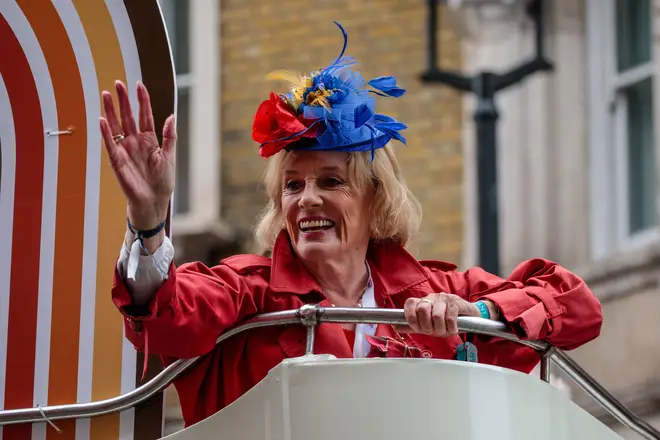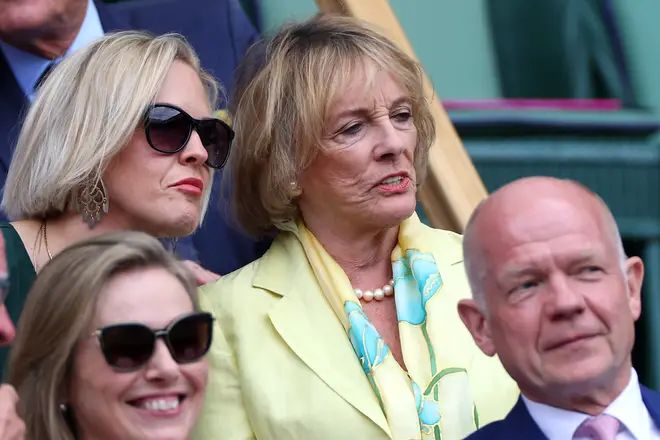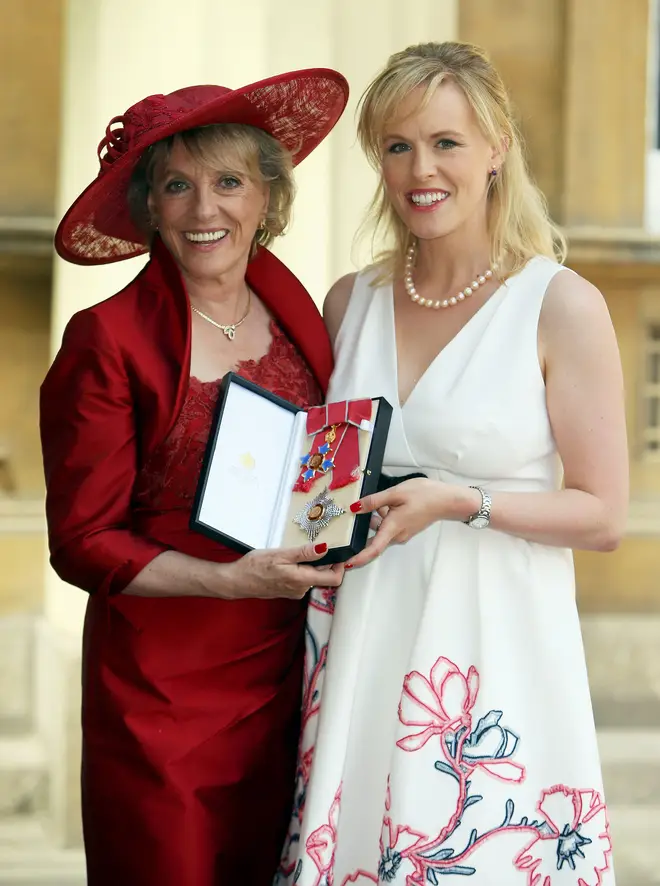
Nick Abbot 12am - 1am
20 December 2023, 08:23 | Updated: 15 February 2024, 09:39

Mel Stride on assisted dying
A Cabinet minister has said that the government has no plans to bring forward new legislation to legalise assisted dying, after Dame Esther Rantzen said she would travel to Switzerland to end her own life.
Work and Pensions Secretary Mel Stride told LBC's Nick Ferrari that Dame Esther, who has stage 4 lung cancer, "has really raised the salience" of the issue of assisted dying by announcing she was going to Dignitas.
Dame Esther, 83, joined the Swiss assisted dying clinic after being told earlier in the year that the cancer was terminal, and that it was unclear how long she had to live.
Her daughter Rebecca Wilcox said she would "ground [her mother's] plane to Zurich" but added that it's "her choice".
If anyone went with Dame Esther they could be arrested on their return home to the UK because assisted dying is illegal in Britain. Ms Wilcox said the thought of her mother dying alone was upsetting.
An assisted dying bill was overwhelmingly rejected by MPs in 2015, the first time the Commons had voted on the issue in 20 years.
Mr Stride said that the government was not currently looking at the issue of assisted dying.
Read More: Dame Esther Rantzen steps down as Childline president after terminal lung cancer diagnosis

Mel Stride on inflation
"It’s not something that the government has any plans to bring back to my knowledge," he said. "But I do think that Esther - and my word, what a special and dignified person she is - has really raised the salience of this issue.
"And I’ve no doubt it will have raised the issue of members of Parliament across the road in Westminster in perhaps looking at it again.
"But I know from a government standpoint I don’t think there are any plans to bring forward any legislation on that."

It comes after Ms Wilcox said she was horrified that Dame Esther could die alone with Dignitas.
She told the Mirror of how she thought her mother would like to die: "My brother, sister and I would be next to her, telling jokes, sharing our final Wordle score, she would beat us at Scrabble, she would close her eyes – and possibly not wake up. That’s the way she would like to go, I think."
She added that the thought of being prosecuted over going to Switzerland with her mother was "horrific".
Ms Wilcox said: "Prisoners get a nicer farewell with their favourite last meal, whereas she goes into some strange conveyor belt where you are rushed through a process in an impersonal room without the people that you love because if they come with you they will be arrested.
"We wouldn’t be able to go because we’d be arrested on landing. I don’t want her to go. I don’t want her to die. I certainly don’t want her to go alone."

Ms Wilcox had earlier said that her mother wanted to avoid having a similar "horrific" death to their father.
Speaking on Good Morning Britain, she said: “My mother never makes a decision in complete isolation but doesn't care what anyone else thinks.
"It's horrific and she always promised us she would live forever and she's not one to break her promises - but this is her choice.
“I would want to ground her plane if she was going to Zurich but it's her choice. She is absolutely correct.
"My late father didn't have a good death. It was horrific. His death replaced our memories of him for a very long time.
"That is what mum wants to avoid."

She added: “When we got the diagnosis in January we never thought we’d have Christmas with her again but here we are.
“She's coming here for Christmas. It's a joy and delight.
"I don't want her to die but I want her to have the choice."
Dame Esther explained this week: "I have joined Dignitas. I have in my brain thought, well, if the next scan says nothing's working, I might buzz off to Zurich – but it puts my family and friends in a difficult position because they would want to go with me.
“And that means that the police might prosecute them. So we've got to do something. At the moment, it’s not really working, is it?"
She said she would want a free vote in Parliament on the subject had she been prime minister for a day.
"Why should you not be given the choice about how you want to go and when you want to go?" she said.
Esther married the late BBC documentary maker Desmond Wilcox in 1977.They were together for 30 years until his death from heart disease in 2000. It has long been a topic of debate whether or not assisted dying should become legal in the UK.
Dame Esther's comments have inspired renewed discussion of the UK's ban on it.
Helping someone with assisted dying or going with them so it can be done abroad carries a sentence of up to 14 years in prison.
Dame Esther is best known for presenting That's Life for 21 years from 1973 to 1994. She also founded Childline but stepped back after her diagnosis.

Wes Streeting says it is time parliament had debate on assisted death again
Mr Streeting told LBC earlier this week that it was "time to have the debate [on assisted dying] again."
Speaking during a phone-in, Mr Streeting said assisted dying was one issue he felt "so conflicted" over.
"I totally understand - to the extent I can understand – why you would want that right to choose and right to die on your terms through legal assisted dying," he said.

"My only hesitation, because I think I’m sold on that principle, is how we get the legal framework right so that no one ever feels coerced – directly or indirectly – to exercise assisted dying without those checks and balances in place and making sure we’ve got the right palliative care in place.
"I think as a country we need a much broader conversation about how to have good deaths."
He went on to say: "I voted in favour of the assisted dying bill when it last came before parliament.
"I agonised about it and depending on how the passage of the bill had gone and how the debate on checks and balances rolled out I was undecided about whether I would vote in favour of the bill at its final reading.
"It’s a difficult one but I think it’s time to have the debate again."